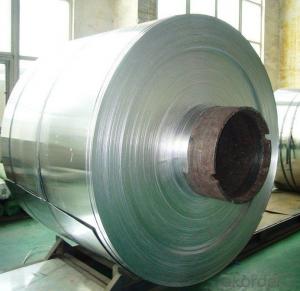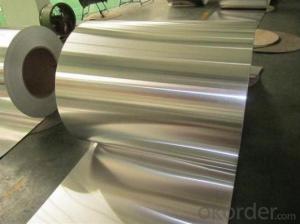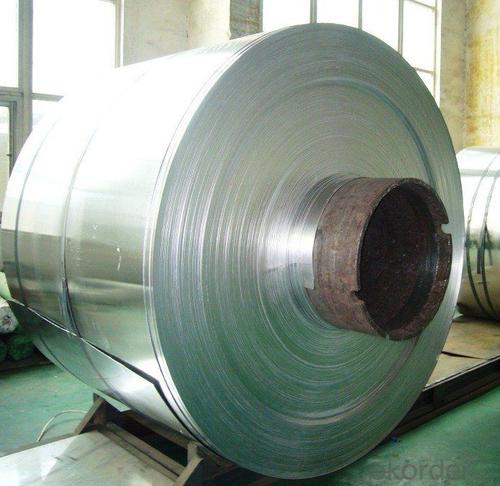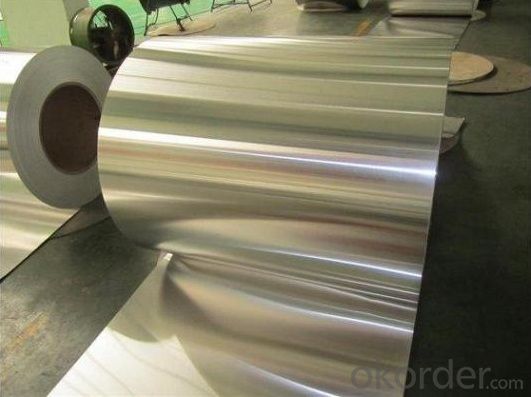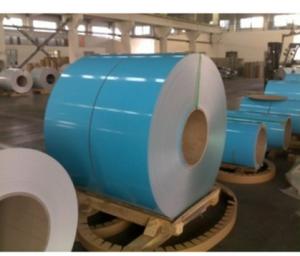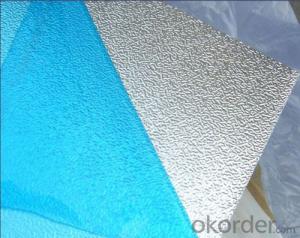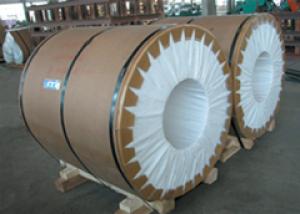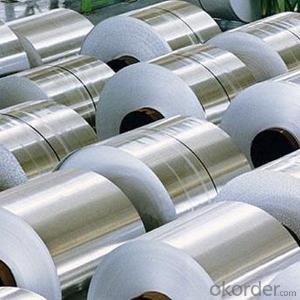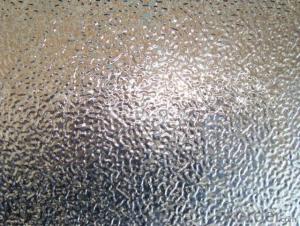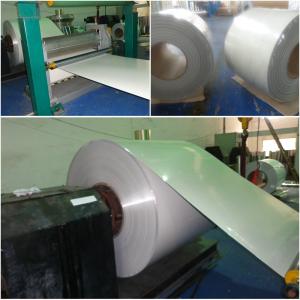Colored Aluminum Coil Stock - Smooth/Corrugated/Stucco Embossed Aluminum Coil
- Loading Port:
- Shanghai
- Payment Terms:
- TT OR LC
- Min Order Qty:
- 2.5
- Supply Capability:
- 5000 m.t./month
OKorder Service Pledge
OKorder Financial Service
You Might Also Like
Specification
Pipeelines Covered Roofing Aluminium Coil
l Product Information
1. Alloy: 1100, 1145, 1050, 1060, 1070, 3003, 3013, 3005, 3A21,4343,4045, 5052, 5082, 5083, 5086,6061,8011 etc.
2. Temper: H12.H14.H16.H18.H22.H24.H26.H32.H34.H36.H38.O etc.
3. Thickness: 0.2mm -- 7mm
4. Width: under2550mm
Remarks: Specific requirement of alloy, temper or specification can be discussed at your request.
l Application:
Building, curtain wall, ceiling, panels, transformers, food packaging, air conditioning, condenser, air filter, refrigerators, washing machines, solar energy, automobile manufacturing, ship manufacturing, machinery manufacturing, electric equipment such as cosmetic packaging, machinery manufacturing industry, can also be used in power plants, chemical anti-corrosion insulation in petrochemical industry, etc.
Characteristics:
Resistant to weather corrosion ,durability, formability, self Cleansing
l Packaging & Delivery
Packaging detail: Sea Worthy Wooden pallet
Delivery detail: About 25 days
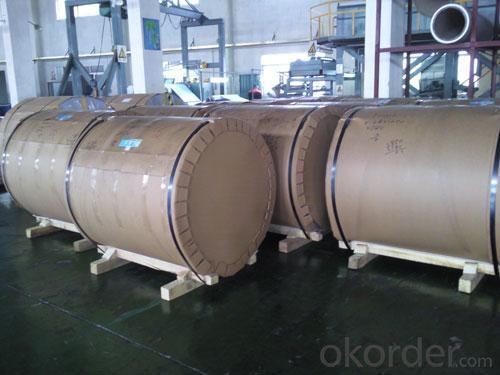
l Company Profile
CNBM International Corporation, China National Building Materials (Group) Corporation, is one of the largest companies in China building material & equipment industry, with 42,800 employees and sales in 2005 of US Dollar 4.395 billion. In 2006, China National Building Material Company Limited was listed on Hong Kong Stock Market with the stock code as 3323.
Aluminium Products have been our featured products. We have specialized in aluminium products for about a decade and have sold our good quality aluminium products to the worldwide.
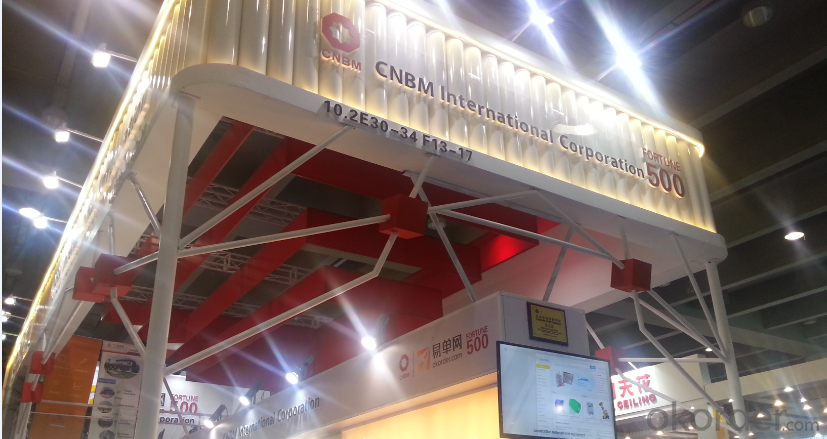
l CNBM World Wide
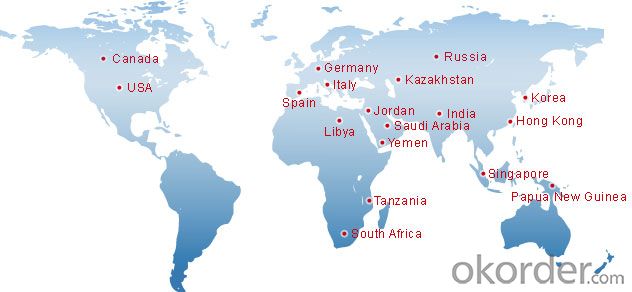
l Product Images
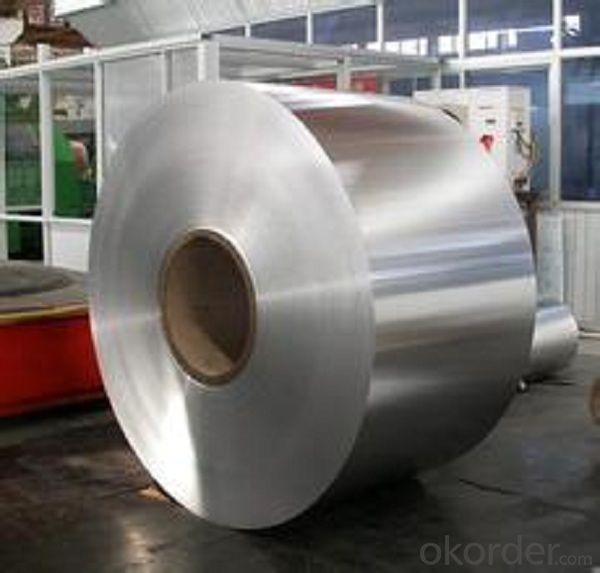
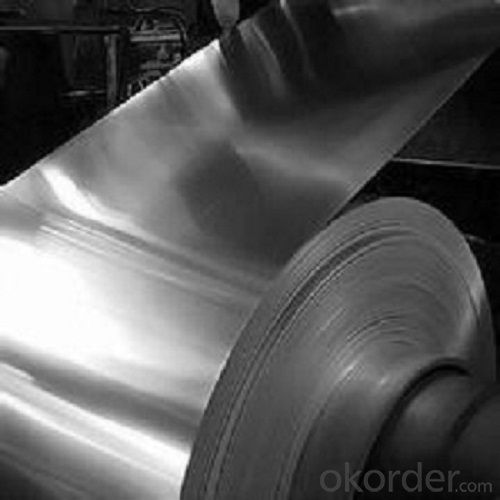
l Certificates
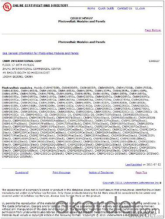
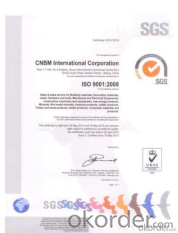
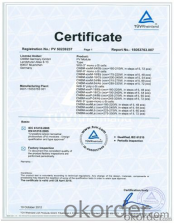
l FAQ
Q: Do you provide free samples?
A: Yes, free samples will be sent to you on freight at destination.
Q: Can I get your latest products catalogue?
A: Yes, it will be sent to you in no time.
Q: What is the MOQ?
A: 2.5 tons
Q: What are your payment terms?
A: We accept L/C, T/T.
- Q: How long do aluminum coils typically last?
- Aluminum coils typically have a lifespan of around 15 to 20 years. However, the longevity of the coils greatly depends on several factors such as the quality of the aluminum used, the installation process, and the maintenance and care provided. Regular maintenance, such as cleaning the coils and ensuring proper airflow, can significantly extend their lifespan. Additionally, environmental factors like exposure to harsh weather conditions and corrosive substances can also affect their durability. Therefore, while aluminum coils have a decent lifespan, it is essential to provide proper care and maintenance to ensure their longevity.
- Q: This question asks for a comparison between cold rolling and hot rolling processes, specifically in the context of steel wire production for coilings.
- <p>Cold rolling and hot rolling are two distinct processes used in the manufacturing of steel wires for coilings. Hot rolling is performed at high temperatures, typically above the recrystallization temperature of the steel, which allows the material to be shaped more easily. This process results in a more ductile and less hard steel, which can be beneficial for certain applications. However, hot-rolled steel may have a rougher surface and may require further processing to achieve desired dimensions and surface finish. Cold rolling, on the other hand, is done at room temperature, which imparts a harder and smoother surface to the steel. It is more precise and results in tighter tolerances, making it suitable for applications requiring high strength and precision. Cold-rolled steel also has better surface finish and dimensional accuracy compared to hot-rolled steel. However, cold rolling is more energy-intensive and may not be suitable for very thick materials due to the increased hardness of the steel at room temperature.</p>
- Q: How are aluminum coils cleaned before further processing?
- To guarantee the elimination of any contaminants or impurities, aluminum coils undergo a series of steps for cleaning prior to further processing. The cleaning process entails the utilization of chemical solutions and mechanical techniques. Initially, the coils are immersed in a degreaser or cleaning solution to dissolve and eradicate any oils, greases, or dirt present on the surface. This stage is essential in eradicating organic contaminants that may hinder subsequent processes. Following the soaking, the coils typically undergo a high-pressure water rinse to eliminate any remaining residues or particles. This step aids in dislodging and flushing out loosened contaminants from the coil surface. In certain instances, a combination of chemical cleaning and mechanical scrubbing or brushing may be employed to effectively eliminate stubborn or baked-on contaminants. This method is particularly beneficial for coils exposed to harsh environmental conditions or industrial processes. Once the coils have been cleaned, they are typically rinsed again to ensure complete removal of any cleaning agents or residues. This is crucial to prevent any adverse effects or interference with subsequent processing stages. Overall, the cleaning of aluminum coils prior to further processing plays a vital role in achieving high-quality end products. It ensures impurity removal, enhances the surface finish, and improves the overall performance and lifespan of the finished aluminum products.
- Q: This question asks for methods to preserve the lifespan of an aluminum coil.
- <p>To maintain an aluminum coil and ensure its longevity, follow these steps: Store the coil in a cool, dry place away from moisture and direct sunlight. Keep it clean by regularly removing dust and debris. Avoid scratching or denting the coil's surface. Handle the coil carefully to prevent damage. Use appropriate lubricants when necessary to reduce friction. Regularly inspect the coil for any signs of corrosion or wear and address these issues promptly. By following these practices, you can extend the life of your aluminum coil and maintain its quality.</p>
- Q: What are the different coil edge profiles available for aluminum coils?
- Aluminum coils come with a variety of coil edge profiles. Some commonly used profiles are: 1. Slit edge: This is the most basic type, where the coil is simply slit to the desired width. The edges of the coil are usually sharp and may have burrs or roughness. 2. Deburred edge: In this profile, the sharp or rough edges of the coil are removed through deburring. Deburring enhances safety and prevents damage to downstream equipment during processing. 3. Rounded edge: This profile involves rounding the edges of the coil through rolling or machining. Rounded edges are often preferred in applications that prioritize safety or involve frequent handling of the coil. 4. Beveled edge: Beveled edge profiles are created by cutting or grinding the edges of the coil at an angle. This profile is commonly used when two coils need to be joined together, as the beveled edges enable a smoother and more secure connection. 5. Custom edge profiles: Depending on the specific requirements of the application, custom edge profiles can be developed. These profiles are tailored to meet the unique needs of the customer and may involve a combination of different edge treatments. It's important to consider the intended application, processing requirements, and desired aesthetic appearance when choosing a coil edge profile. Manufacturers and suppliers of aluminum coils typically offer a range of edge profiles to accommodate different customer needs.
- Q: Can aluminum coils be used in high-vibration environments?
- Yes, aluminum coils can be used in high-vibration environments. Aluminum is a lightweight and flexible material that can withstand and absorb vibrations effectively. It is commonly used in various industries, including automotive and aerospace, where high-vibration environments are prevalent. Additionally, aluminum coils are often designed and manufactured to have enhanced durability and resistance to vibration-related issues such as fatigue and cracking.
- Q: What are the common sizes of aluminum coils used in roofing?
- The common sizes of aluminum coils used in roofing can vary depending on the specific needs and requirements of the project. However, some popular sizes include 24-inch, 36-inch, and 48-inch widths. These sizes are often chosen for their compatibility with standard roofing systems and their ability to cover a wide surface area efficiently. Additionally, the thickness of the aluminum coil can also vary, with common options ranging from 0.019 inches to 0.032 inches. Ultimately, the size of the aluminum coil used in roofing will depend on factors such as the size of the roof, the desired aesthetic, and the local building codes and regulations.
- Q: This question asks for a brief explanation of the process involved in manufacturing aluminum coils.
- <p>To make aluminum coil, start with high-quality aluminum ingots. These are melted in a furnace and then poured into a casting machine to create a continuous cast strip. This strip is passed through a series of rollers to reduce its thickness and achieve the desired width and thickness. The rollers apply heat and pressure, gradually forming the aluminum into a coil. The coil is then cooled, often using water, and wound onto a mandrel for storage or further processing. Quality control checks are performed throughout the process to ensure the coil meets specific strength, thickness, and surface finish requirements. The final product is a tightly wound aluminum coil ready for use in various industries such as construction, automotive, and packaging.</p>
- Q: Are aluminum coils resistant to saltwater corrosion?
- Yes, aluminum coils are resistant to saltwater corrosion.
- Q: Can aluminum coils be used in the production of aluminum windows?
- Yes, aluminum coils can be used in the production of aluminum windows. Coils are often used to create the frames and profiles of aluminum windows, as they can be easily shaped and formed into the desired configurations. This makes aluminum a popular material choice for window manufacturers due to its lightweight, durability, and corrosion-resistant properties.
Send your message to us
Colored Aluminum Coil Stock - Smooth/Corrugated/Stucco Embossed Aluminum Coil
- Loading Port:
- Shanghai
- Payment Terms:
- TT OR LC
- Min Order Qty:
- 2.5
- Supply Capability:
- 5000 m.t./month
OKorder Service Pledge
OKorder Financial Service
Similar products
Hot products
Hot Searches
Related keywords
